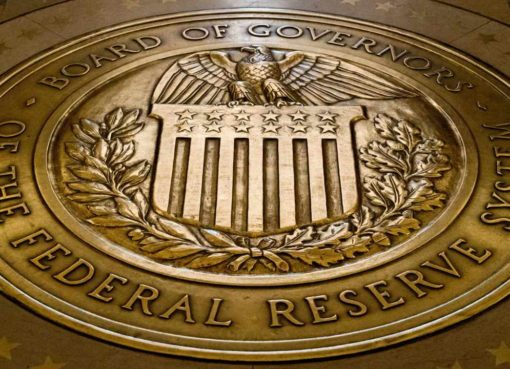A fresh perspective on Bitcoin has recently surfaced courtesy of prominent crypto enthusiast and YouTuber Lark Davis. Davis offers an interesting parallel between Bitcoin’s potential fate and gold’s historical performance, especially spotlighting the transformative year of 2004 for the latter.
Reflecting on gold’s journey in the early 2000s, a period marked by the introduction of a gold Exchange Traded Fund (ETF), Lark Davis suggests that Bitcoin may be on the brink of a similar breakout. While this is a bold claim, its rationale, centered on the anticipated launch of a Bitcoin spot exchange-traded fund (ETF), warrants a closer look.
Gold’s 2004 Surge: A Prelude To Bitcoin’s Future?
2004 was transformative for gold, with its price trajectory reflecting a notable paradigm shift. The catalyst for this change was the launch of the first gold ETF – SPDR Gold Shares (NYSE: GLD) by State Street Corporation.
A chart shared by Davis vividly encapsulates this: the price of gold began its ascent from a modest $400 per ounce towards the end of 2004 and reached a pinnacle of $1,939 by 2011.
Although a decline to $1,184 followed this meteoric rise, the overall trend showcased the profound impact of ETFs on asset prices. If history were to serve as a guide, Davis’s analogy suggests Bitcoin might follow a similar path.
A potential Bitcoin spot ETF could usher in a flurry of new investments, changing the market’s supply and demand dynamics.
As Davis showed from the gold example, introducing such an ETF for Bitcoin could potentially attract between $20 billion and $30 billion. Assuming today’s prices, this would be equivalent to newcomers snapping up approximately half of the available Bitcoin on exchanges.
Estimates are that a spot Bitcoin ETF would bring 20-30 billion of fresh cash into Bitcoin. That would buy about half of all coins on exchanges at current prices.
For reference here is what happened to gold when it got its first ETF approved on US markets.
History repeating? pic.twitter.com/CBNvZgMq18
— Lark Davis (@TheCryptoLark) September 4, 2023
‘Supply And Demand Don’t Lie’
While Davis’s projection is rooted in past trends, it’s crucial to understand the broader dynamics at play. His assertion that “supply and demand don’t lie” underlines the fundamental economic principle that when demand exceeds supply, prices generally rise.
The launch of a Bitcoin ETF would invariably boost demand by offering a more accessible and regulated way for investors to gain exposure to Bitcoin without owning the underlying asset directly. This surge in demand and Bitcoin’s capped supply might push prices higher, just as it did for gold in 2004.
However, as with all financial forecasts, there’s a degree of speculation involved. While the parallel between gold’s 2004 trajectory and Bitcoin’s potential future is compelling, only time will reveal the actual course of events.
Despite this forecast, Bitcoin has seen a slight dip over the past 24 hours, with a current market price of $25,867, at the time of writing.
Featured image from iStock, Chart from TradingView




